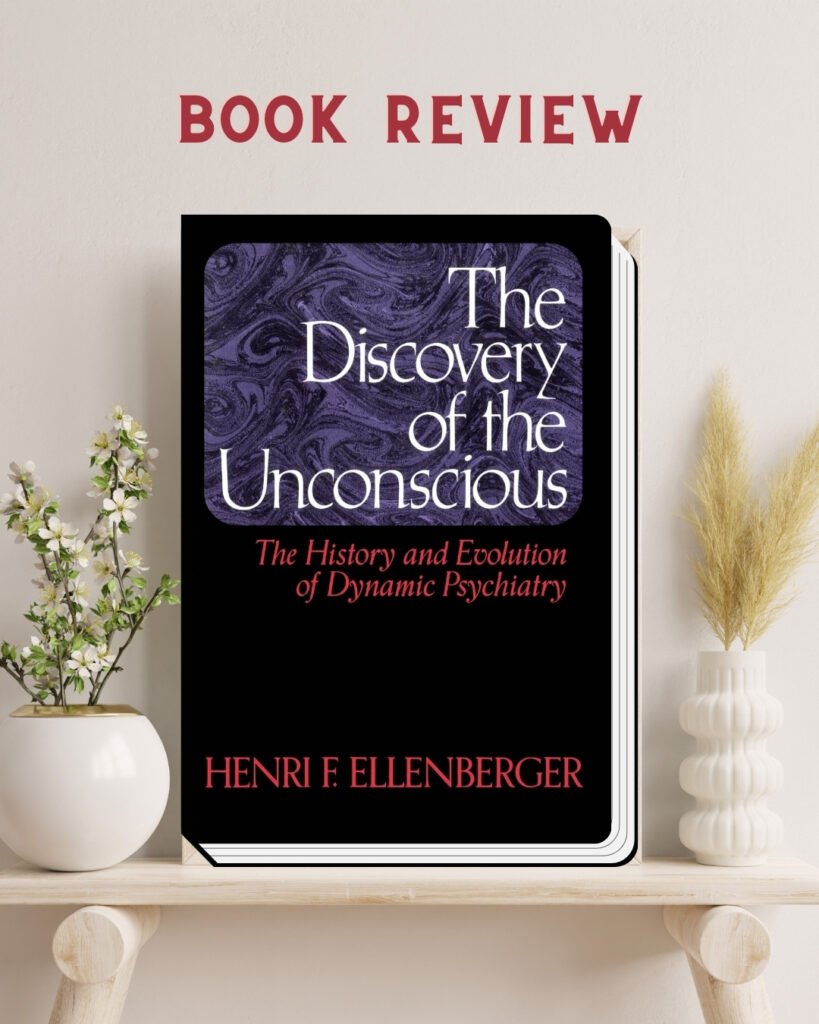Introduction: Discovering the Depths of the Human Mind
Step beyond the familiar boundaries of psychology texts with Henri F. Ellenberger’s “The Discovery of the Unconscious: The History and Evolution of Dynamic Psychiatry.” This book transcends mere historical recount to explore the profound depths of human psychology. Ellenberger’s meticulous research unravels the intricate layers of our psyche, revealing how our deepest thoughts and behaviors are shaped by dynamic forces unknown to our conscious selves. As we dissect this groundbreaking work, prepare to challenge your understanding of what it truly means to be human, with insights that promise not just knowledge, but a transformation in thinking.
The Journey Begins: A Brief Overview
Henri F. Ellenberger’s “The Discovery of the Unconscious: The History and Evolution of Dynamic Psychiatry” delves into the evolution of dynamic psychiatry, charting its growth from obscure origins to a cornerstone of modern psychological practice. Ellenberger weaves a narrative that is as much about confrontation as it is about exploration, illustrating how the pioneers of the field wrestled with the enigmatic concept of the unconscious mind. The book spans an impressive range, examining the historical milestones, cross-cultural influences, and evolving methodologies that have shaped psychiatric treatment. This section sets the stage for understanding how our deepest unseen forces are examined and interpreted in varied therapeutic contexts.
Unearthing the Past: Historical Evolution and the Unconscious
Ellenberger’s exploration into the origins of dynamic psychiatry illustrates how ancient beliefs and early medicinal practices have seamlessly woven into the fabric of modern psychological theory. The concept of the unconscious, often misconstrued as a contemporary innovation, emerges as a recurrent theme throughout history. This extensive historical analysis not only deepens our appreciation for current psychiatric methods but also compels us to critically evaluate the potential trajectories of mental health care. Ellenberger challenges readers to reconsider the ‘newness’ of modern psychology, pushing for a broader perspective on how past insights continue to influence contemporary practices.
A Global Examination: Understanding the Mind Beyond Borders
Ellenberger excels in his cross-cultural analysis, revealing how the pursuit of understanding the human mind is a universal endeavor that spans diverse civilizations. By delving into how various cultures throughout history have approached mental illness, he not only broadens the scope of dynamic psychiatry but also enriches our understanding of what constitutes mental health. This global exploration not only highlights the variety in human psychological constructs but also underscores the importance of synthesizing these varied perspectives to foster a more comprehensive understanding of the psyche. Ellenberger’s work challenges us to break free from a Western-centric view and to embrace a more inclusive approach to psychiatric theory.
Therapeutic Evolution: The Diverse Arsenal of Psychiatric Treatments
Ellenberger navigates through the evolution of psychiatric treatments with a keen eye, dissecting major methodologies from the well-trodden paths of psychoanalysis to the individual nuances of Adlerian psychology. His critique isn’t shy about pointing out where these theories succeed and where they falter, providing a nuanced perspective that’s often missing in more polarized discussions. This exploration is not just an academic recount, it challenges current practitioners to re-evaluate which historical techniques might still hold relevance or require reinvention for today’s complex psychiatric needs.
Shaping the Future: The Unconscious’s Role in Contemporary Psychiatry
Ellenberger’s exploration of how the unconscious has molded modern psychiatry stands as the cornerstone of his thesis. With detailed analysis, he traces the direct lines from historical breakthroughs to their current applications, illustrating how these foundational ideas continue to shape our theories and practices in mental health. More than just a historical review, this insight acts as a call to action, urging today’s mental health professionals to innovate and build upon these legacies to enhance future psychiatric care.
Reflections: Daily Echoes of the Unconscious
Reading Ellenberger’s exploration of the unconscious, I find his concepts strikingly relevant to everyday life. His detailed discussion on the unconscious has sharpened my awareness of the complex forces molding our behaviors forces often as invisible to us as the bulk of an iceberg beneath the sea. This metaphor, famously coined by Freud, aptly underscores the essence of Ellenberger’s findings: much of what drives us lurks unseen, below the surface of our conscious awareness.
Ellenberger’s book doesn’t just enrich our understanding of psychiatric theory, it offers a lens through which we can view our own lives. The realization that unseen forces influence our every action and decision can be both daunting and enlightening. As we navigate our own minds, Ellenberger arms us with the tools to better understand ourselves, urging a journey into personal depths that promises transformative insights and heightened self-awareness.
Conclusion: A Vital Expedition into the Mind
“The Discovery of the Unconscious” by Henri F. Ellenberger does more than narrate the history of dynamic psychiatry, it compels us to confront our innermost workings. Through a masterful blend of historical insight and psychological exploration, Ellenberger not only informs but transforms our understanding of the human psyche. This book is essential for anyone seeking to unravel the complexities of the mind its rich narrative provides both a scholarly education and a personal journey into self-awareness.
Ellenberger’s work is not just a reflection of past theories but a call to engage actively with our psychological landscapes. As we conclude our exploration, we are left with more than just knowledge, we are equipped with a perspective that challenges us to think deeper about ourselves and others. The trek through the unconscious might seem formidable, but Ellenberger makes it accessible, insightful, and, most importantly, profoundly rewarding.






